Chinese Herbal Medicine
Chinese Herbal Medicine
Chinese herbal medicine has been in use for thousands of years. Over its extensive history, this practice has been studied and refined, and its practitioners have used modern scientific research to improve patients’ health and wellbeing.
Here at Happipuncture, we offer traditional Chinese medicine services to help with physical, mental and emotional ailments. If you would like to know more about how we can help you or book a free initial consultation, please contact us at Happipucnture.
Herbal Medicine in Auckland
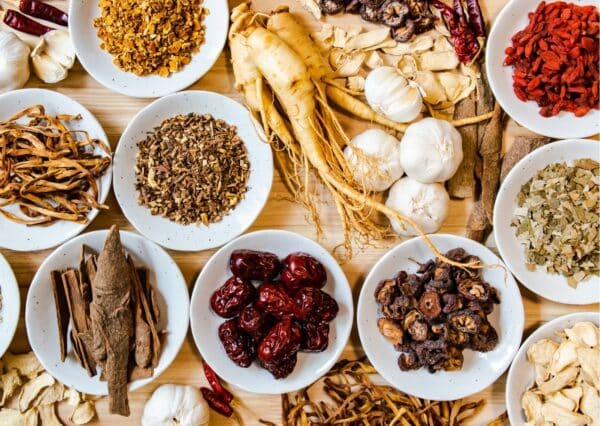
The most distinctive feature of Chinese medicine is how herbs are combined into specialised formulas tailored to an individual patient’s needs. Practitioners believe that this allows the herbs to interact synergistically and produce a holistic, overall therapeutic effect.
To determine the right formula, our practitioners will start by making a careful diagnosis. This process involves taking a patient’s medical history, getting details of their current condition and reviewing their pulse and tongue, which in traditional Chinese medicine is a significant indicator of health.
What Herbal Treatment Looks Like
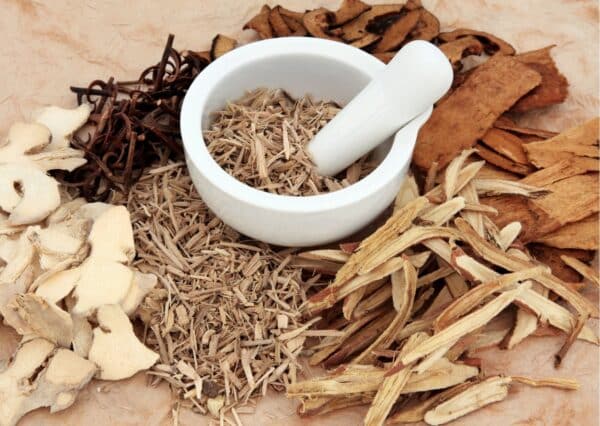
Like acupuncture, Chinese herbal medicine focuses on balancing the body’s systems to promote holistic, natural healing.
After the initial consultation, the practitioner will prescribe a combination of herbs customised to your body’s constitution and specific complaints. These herbs can be processed into a wide variety of forms, which may include:
- Granules that are dissolved in hot water and consumed as a liquid
- Raw herbs that are boiled into a tea
- Syrups
- Freeze-dried powders
- Pills, tablets or capsules
- Topical ointments or tinctures
Herbal treatment is generally safe and rarely has any side effects. Some individuals may struggle with the herbs’ sometimes strong flavour and smell, although many people adjust to them over time. If you find ingesting the herbs a challenge, you can mix them with honey to soften their taste and make them more palatable.
What Exactly Are Chinese Herbs?
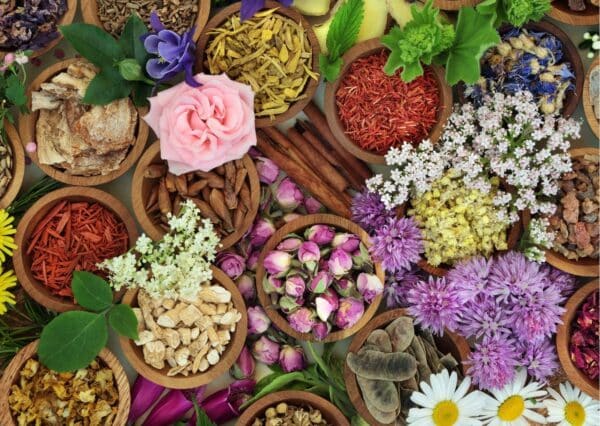
These are individual herbs that work synergistically together to accomplish specific goals. They are usually parts of plants, such as leaves, bark, flowers or seeds. That means that the body processes these herbal concoctions in the same way that it processes food.
Because traditional Chinese herbal remedies only stay in the system for a few hours, practitioners usually prescribe regimens to be taken over a more extended period. The herbs are prescribed in carefully designed formulas of between 2 to 50 individual herbs tailored to the individual patient.
Traditional Chinese herbal medicine practitioners use these herbs for varied treatment goals such as supporting proper digestion or relieving low back pain. They can help with a wide range of issues – respiratory, gastrointestinal, neurological, endocrine, dermal, mental disorders, and many more. They can also regulate inflammation or the immune system!
Our practitioner would also advise you to make specific dietary changes, such as avoiding spicy foods or alcohol. Foods are believed to either ‘heat’ or ‘cool’ the constitution, making nutritional changes an essential part of the healing process.
The History of Chinese Medicine
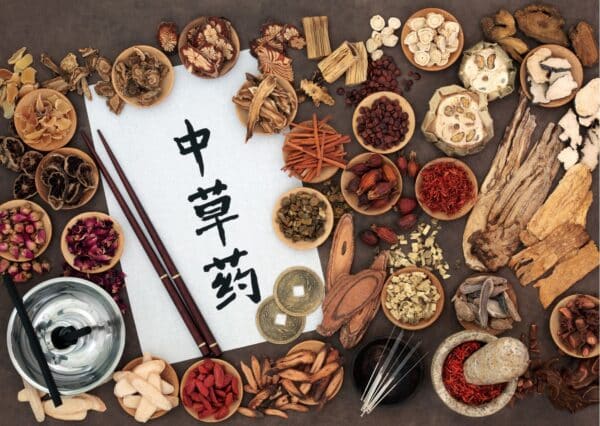
For thousands of years, traditional Chinese medicine practitioners have observed nature and the environment and classified natural substances into categories depending on their effects on the body.
Modern practitioners use this extensive collection of knowledge to provide structured advice to fit an individual’s circumstances and boost their overall wellbeing.
Although traditional Chinese herbal medicine is part of an unbroken tradition, it is not stuck in the past. It has constantly developed and adapted to modern medical diagnostic knowledge and techniques to provide better and better results for its patients.
It uses herbs and herbal remedies to promote a healthy balance of the forces present in nature and the body’s life energy, Qi. Practitioners of Chinese medicine believe that when these levels are out of balance, sickness and injury result.
For these reasons, Chinese medicine focuses on using formulas of organic ingredients, which are usually botanical in origin, that work together in harmony to realign the balance of these natural forces.
What Can Chinese Herbal Medicine Help With?
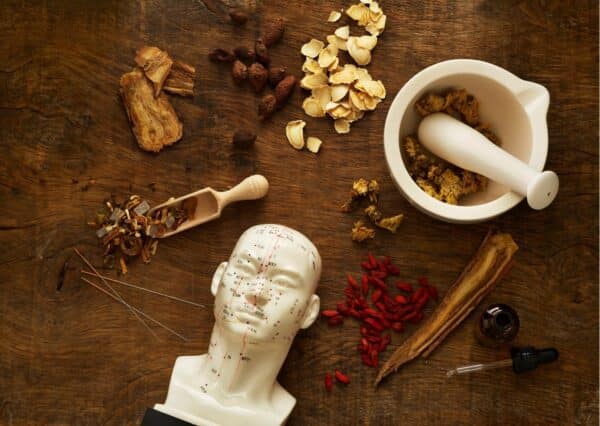
Because traditional Chinese medicine, like acupuncture, is a holistic and natural process of treatment, it has been used in the treatment of a wide range of conditions. These include:
- Granules that are dissolved in hot water and consumed as a liquid
- Raw herbs that are boiled into a tea
- Syrups
- Freeze-dried powders
- Pills, tablets or capsules
- Topical ointments or tinctures
Is Herbal Medicine Safe?
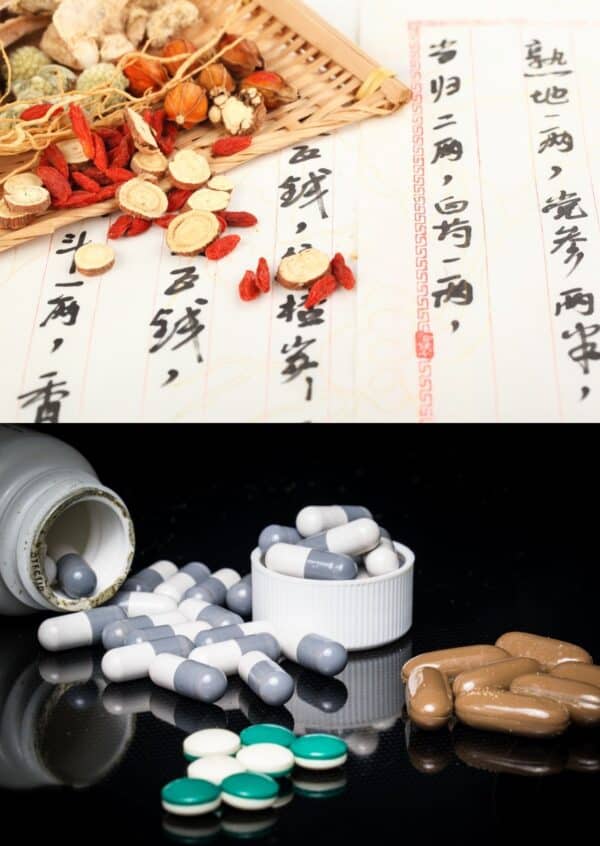
Because Chinese herbal medicine uses formulas based on a mixture of botanical compounds, its treatments can be more balanced than pharmacological therapy based on isolated active ingredients. For this reason, it is less likely to cause side effects.
It can be used by patients of any age, including children and pregnant women. As part of your consultation, our practitioner will discuss your overall health and consider any current illness or medication you might be taking before determining the correct dosage for you.
Allergic reactions are rare.
The team at Happipuncture looks forward to introducing you to the benefits of restored balance to your overall health and wellbeing. Please contact us at Happipuncture to arrange a free initial consultation.

